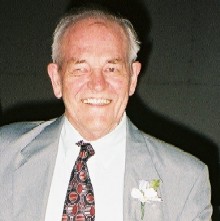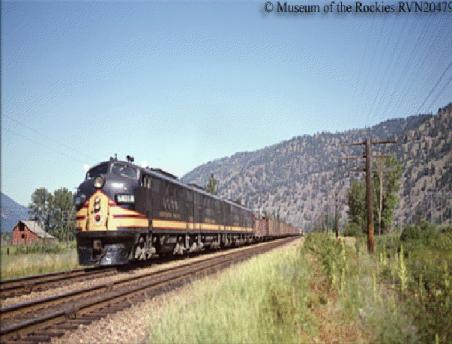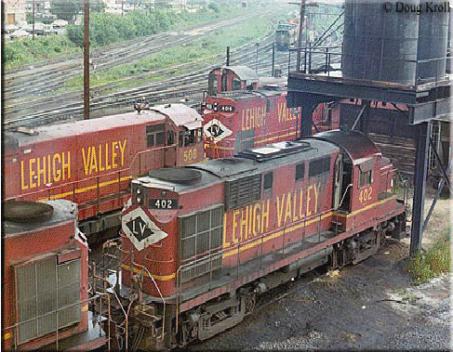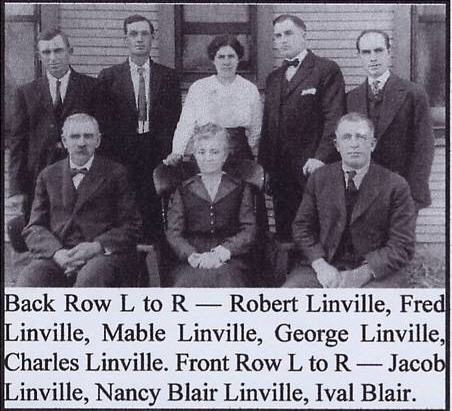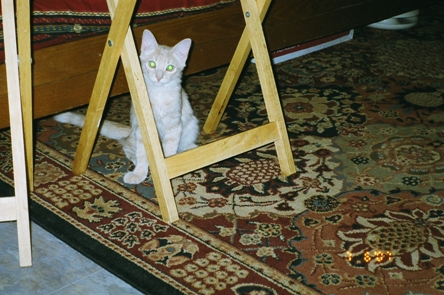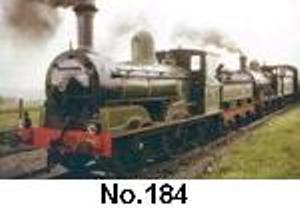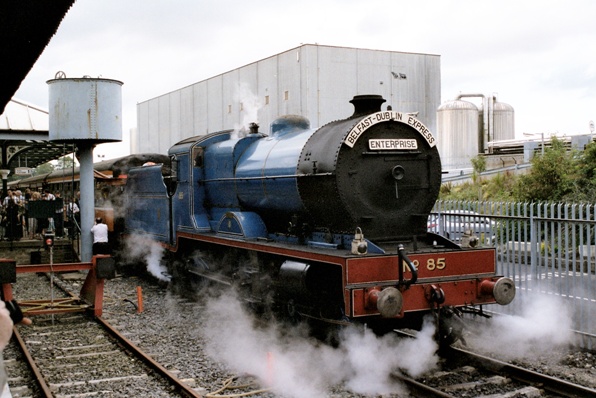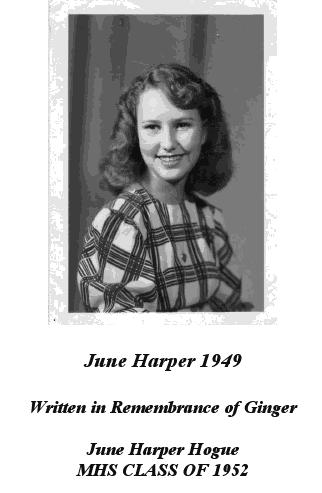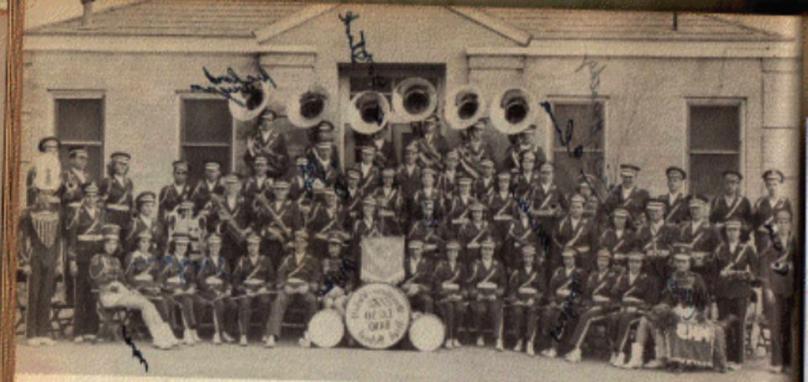Rabbo Tales-Chapter 5 part 2
By Mark Crocker
Rabbo awoke in the dark bedroom and looked around. Athena’s bed was empty but his mother was curled up next to Cat at the foot of the bed.
Rabbo could hear a faint thumping sound and wondered if he had drunk too much wine and that he had a hangover despite what Merwyn had told him that he would not. Then he started to feel that strange feeling is his head like something or someone was trying to get into his head. Rabbo wondered why as he had mental mind shields to stop that. Then he remembered that until he had trained his mind fully the shields would go away every time he went to sleep or if he got too focused on other things.
So Rabbo closed his eyes and thought about his mental mind shields and brought them back up so that the feeling would go away. As he sat on the window sill with his eyes closed he could still hear the faint thumping sound. After a while of focusing on his mental mind shield Rabbo heard the sound stop and the house was still and quiet. Rabbo then went back to sleep.
Rabbo awoke to the soft sound of Athena singing. He looked around and saw her sitting at her dresser brushing her long hair. His head did not hurt and he had no sign of having a hangover. So he hopped down from the window sill. The loud thud made Athena turn around and look at him. Athena looked happy but tired like she had not slept much. In fact she looked like she needed to sleep.
Rabbo hopped out of the bedroom and hopped down the hallway to the elevator. He pushed the level and wait for the elevator to come back up to him. He wondered who had used his elevator and when it came back up his mother was sitting on it looking very scared. Rabbo hopped on next to her and pushed the level so that the elevator would go down to the kitchen. When they got to the bottom Cat was sitting there looking at both he and his mother.
“I teach to use up and down thing. She no likes and scared she is. Silly rabbit” and then Cat just strutted off with his tail held high.
Rabbo nudged his mother off the elevator platform and then nudged her over to her food bowl. The food bowl with full of fresh carrot tops and still had rain water on them. As soon as his mother smelt the rain on the carrot tops she started to eat very fast as if she had never tasted anything so good.
Athena came down the stairs and looked around. “Where is dad” she asked.
“Dig, planting stick things” said Cat from the kitchen door.
Rabbo and Athena sat down to eat breakfast. About half way though Merwyn walked in and joined them at the breakfast table. As they were getting close to finishing breakfast Merwyn who had been in deep thought though the whole of breakfast looked at Athena.
“I don’t think it would be wise for you to go to the village anytime soon. They are turning you into a goddess. You know what they have called the village”?
“Dad I have no idea. Athenaville”?
“It’s no joking matter. You remember what happened to us down south by that great river. The others became like gods and they fought among themselves for power over the people. You know my feelings about that kind of thing. And they still fight. You agreed with us moving then and do you remember why”?
“Yes dad I remember why. And I still agree that it was the right thing to do. And yes we are not gods and what was happening to the people there was totally wrong. But this is different. We are helping the people and that they think us gods is beside the point and the gift of food was very nice and something we really needed. But as long as we remember that we are not gods and remember that we are here to help that won’t happen. I won’t let it” said Athena very vehemently. “I swear that I will not become like Ra, Anubis Horus or my beloved Bastet. I swear by my body and blood that I will not turn into them”.
Merwyn looked at Athena and smiled “I am so glad that you have sworn an oath as you have never broken an oath in your whole life.”
Rabbo had sat still the whole time listening to what they had been saying and the fact that there where others opened his eyes to what might have been. Rabbo waited for a moment to make sure that Merwyn and Athena had finished talking. “There were seven of you that came here to this planet” asked Rabbo?
“No” said Merwyn “there was 101 of us that came here. Most are dead because they fought among themselves over the people that lived along the great river to the far south. Maybe 30 are left and they still fight for control over the people. But now they use the people like slaves to do their fighting. It’s so morally wrong to use the natural ability that has grown in our minds to use people like that. And they were all brought up to know better. But the power the felt at being worshiped as gods took them and turned them into the very thing we hated most”.
Merwyn looked down at the ground and then again at Rabbo. “On our home world there were millions of us all with the ability to control things with our minds. Some less powerful and other more powerful and then came the war” Merwyn was silent for a long time and then looked up. “I fought in the war and it cost me the thing I loved the most. Only I did not know it at the time.”
Merwyn pauses and thought a moment “I think you have kept me talking so that you don’t have to go to class young rabbit and you my daughter won’t have to milk the cows” and with that Merwyn got up and walked back outside to his planting.
Rabbo hopped down from the table and started to hop towards the library. He looked back at Athena and was about to ask her about the south and her home planet but Athena just shook her head and turned and walked out the kitchen door. To Rabbo it had been an enlightening conversion and he had learned much about Merwyn and Athena. He was sure that it was Isis that Merwyn had loved and lost and was why at times he seemed so sad. As for the others had had come with them he gave no second thought.
It was just as Rabbo’s second class of the day was ending when he felt the strange feeling in his head again. That feeling he got was like something or someone was trying to get into his head. Then he remembered that he had not thought about his shields all day and that his shields were more than likely down and that he better put them up.
But he wondered where was that strange feeling coming from and it was never at the same time every day. But it was almost always late in the day or in the morning. And why was it only him that felt it? Was it because Merwyn and Athena had their shields up all of the time that they could not feel it? Was it because they were humans? Was it because he once had been a wild animal? Rabbo was not sure and he knew that he had to answer each question before he could understand the whole.
Rabbo sat still and listen to the strange feeling yet he still could not make out what was being said if anything and who or what was doing it. All he knew was that he was having a strange feeling. Whether it was good or bad he was not sure. Yet this time it seemed to go on far longer.
In deep thought Rabbo hopped out of the library though the kitchen and out though the kitchen door. He stopped and looked around to see what was going on.
Yet the strange feeling would not leave him and if anything it was getting stronger by the moment. So Rabbo closed his eyes and thought hard about his shield as the feeling now was so intense that all he could think about was the strange feeling. As hard as he tried the feeling grow inside him to the point where it was now impossible for him to think even of his shields.
Rabbo looked up turned his head to the south and looked up at the sky. For some reason he focused on a point on the day time sky. Suddenly the feeling stopped as if a leveler had been thrown. Rabbo let out a moan of relief that he no longer had that feeling building in his head. He sunk to the ground and for a moment lay as still as if he was dead.
“Rabbo you ok” Athena’s voice drifted into his head.
Rabbo sat back up looked around and he could see Athena sitting outside the shed with a barrel next to her that was spinning end over end.
Athena was too far away to talk with his voice so again Rabbo closed his eyes and pictured Athena in his head. “The strange feeling was so powerful it was overwhelming me”
“Let me get dad” said Athena’s voice in his head
A few moments later Merwyn came walking up the path with a shovel over his shoulder. He looked a little hot and sweaty as if he had been working hard. Merwyn walked right up to Rabbo put down the shovel and reached down and picked him up. Merwyn held Rabbo at arms length and looked deeply into Rabbo’s eyes.
“Hmm not from around here. Hmm from far away. Hmm very far away indeed. We must do something to stop that feeling inside your head dear rabbit” said Merwyn’s voice inside Rabbo’s head. Merwyn placed Rabbo’s front legs over his shoulder and walked over to where Athena was sitting with the spinning barrel.
“How’s the butter coming along” asked Merwyn.
Athena closed her eyes and the barrel stopped spinning “Almost done. You know we will have plenty to trade with the village. It might be a good idea if I went to the village and traded the butter and cheese for wool as your pants and shirts are starting to look old and well worn”.
Rabbo who was still on Merwyn’s shoulder watched as his female rabbit friend hopped up the pathway followed but 3 other rabbits. The 3 other rabbits spotted Merwyn and Athena and stopped and looked around. But Rabbo’s female friend just kept hopping towards them. Rabbo wriggled on Merwyn’s shoulder so Merwyn put him down.
Merwyn had not turned to look at the rabbits so Rabbo hopped off to join his female rabbit friend. Rabbo noticed that his female rabbit friend was a little on the fat side so he sniffed her and looked closely. Maybe she was eating too much and that’s why she was getting fat. And then something in the back of Rabbo’s memoir popped to the forefront.
“She is pregnant” said Merwyn. “Your mind leaks your thoughts Rabbo. Shield always use your shields.”
Suddenly she froze and Rabbo heard a faint thumping sound of a rabbit giving warning.
Rabbo raised up on his hind legs and started to listen to what the warning might be. His ears scanned listening hard. Then he heard the sound of four feet running and a faint sniffing sound like something sniffing the air to get a scene
Cat who had been up on the roof of the shed sunning himself slid down and walked over to Merwyn. “Dog in woods. This way comes”.
“You will not hurt the dog Cat. You know how I feel about hurting things that are not for food” said Merwyn.
“Dog hunt and kill rabbits as rabbits easy to hunt”
“I know and it must eat to live as it has no master to feed it or care for it and its too wild to tame now” Merwyn said.
“Pah” said Cat and walked off his tail swishing.
Rabbo turned back to his female rabbit friend who was now pressed against him shivering in fear. Rabbo leaned against her to give comfort and to let her know that she was protected by him. But Rabbo was not sure that if the dog came out of the woods he could fight off the dog. He just hoped that if he fought hard enough the dog would go after easy pray.
Then without warning the feeling in his head returned with such force that Rabbo let out a yelp. His female friend pulled away and looked at Rabbo. At the same time Athena looked over at Rabbo at the sound of his yelp.
Merwyn sat down on the ground and crossed his legs and closed his eyes. From the woods came a faint yelp of a dog being hurt. A few seconds later there was a series of yelps that grow fainter and fainter as the dog moved away.
“Think Cat had dealt with the dog. He might have to do that a few more times until the dog learns it’s not welcome here” said Athena.
After a while Cat came back limping and tuffs of fur hanging off its body. “Stupid dog think me weak. Stupid dog fight me. Stupid dog learn claws sharp. Me stupid and think dog weak. Need ointment for wounds” Cat sat down next to Athena and licked his paws before limping closer to Athena.
Athena picked up Cat and walked off to the house. “Stay here with dad” Athena said in Rabbo’s mind as she left.
Rabbo snuggled close to his female rabbit friend as he waited for Merwyn to open his eyes. The other rabbits that had hidden in the long grass hopped out and started to eat the young tender grass in front of the house. Rabbo’s mother came out and hopped over and joined the rabbits on the lawn.
Rabbo’s female rabbit friend started to eat the grass near by as she slowly moved away. As much as Rabbo wanted to eat the feeling in his head had returned and was getting so strong that he could no longer move. He could not even think clearly and there was no way that he could get his shields up to stop the feeling in his head. To Rabbo it now felt like someone was dancing in his head and that nothing could stop that feeling.
The feeling was so strong now that he started to whimper softly as it was becoming painful and it no longer hurt just his head but his ears teeth and eyes hurt. Rabbo closed his eyes but that did not help. He raised his paws to his ears and tried to burrow his face into the grass and still the pain would not go away. The pain became so much that Rabbo started to thrash around on the grass. Turning his body this was and that way to try and get away from the pain. And still the pain grow and grow inside his head.
Then he felt himself sinking down and down into darkness tumbling falling further and further down to a place with no light and no way out. Tumbling and falling end over end. All hope left Rabbo that the fall would ever stop. Then at last there was stillness and nothing.
Slowly Rabbo awoke and he could feel warmth on one said and something sliding up and down his fur. His mind was no longer filled with pain and he could think.
He opened his eyes and could see the fireplace in the kitchen and a faint glow from the oil lamp that Athena normally kept in her bedroom. The gray light of dawn was coming in though the windows in the kitchen.
“You are safe Rabbo” said Athena’s voice from behind him.
He started to turn but her hand held him in place. “Don’t turn and hold still. I’m going to look into your mind”.
Rabbo felt a faint feeling in his head that made him feel happy and relaxed. He closed his eyes and saw Athena smiling at him. Then a warm feeling spread thought out his whole body.
“I can’t fix what ever it is that is bothering you but I can help you relax right now” said Athena’s voice in his head.
Rabbo saw a younger Athena in a bed shaking with a fever and Merwyn with tears on his cheeks holding her hand. He saw another man dressed in a dark robe sitting next to Merwyn with his eyes closed and a hard look on his face. Then Rabbo heard the other man speak. “Let her die. She suffers so and it would be good to let her leave this world”.
“I won’t let he go she is all I have left without her I will go to the other world too” said Merwyn though his tears.
“You can’t we need you General. I speak for all of us. You have to stay here to guide us as you have always done” said the other man.
“You don’t need me any more. You no longer listen to me. You treat the people of this land like the followers of Tonar treated the lesser people of our planet” Merwyn said though his tears.
Merwyn turned back to Athena leaned down and touched his lips to Athena’s lips. “I share my life force with you my dear daughter. All I am is yours so you may live”
Athena opened her eyes and looked up at Merwyn. Weakly she spoke “I will hold you to that one day dad”. Then Athena closed her eyes to sleep and the fever passed.
Rabbo saw all this while Athena was linked to his mind taking away the pain that he had felt earlier.
Athena withdrew from Rabbo’s mind and he felt the memoir of earlier fade to something he could look at without fear. He opened his eyes and looked up at Athena.
“I felt a feeling that I have never felt before when you were in my mind. A feeling that nothing mattered other than the well being of Merwyn” said Rabbo.
Athena laughed “When we link you feel what I feel and I feel what you feel. The feeling you felt from me is called love. And I do love my father that much. After all as you saw him gave up a lot of his life force so that I could live. A fathers love for his daughter is such that he would trade his life for hers or that is the way my father is to me”.
“I like that feeling” said Rabbo. “Talking of Merwyn where is he”?
“He is still in the garden searching for what is attacking you. Cat is on watch to make sure nothing bothers him”. Athena paused “You must be hungry I know I am and dad will be when he comes back”.
She put Rabbo down on the rug next to the fireplace stood up and walked over to the storage room were the fresh food was kept. Rabbo looked around and saw his mother sitting on her hind legs watching another rabbit at her food bowl. It took Rabbo a few moments to realize that the other rabbit was his female friend and he was confused at why she was there.
“Your mother won’t let her leave” said Athena from the kitchen sink.
Rabbo hopped over to the kitchen table so that when Athena placed his bowl on the table he could eat right away as he was feeling very hungry.
The kitchen door opened and Merwyn walked in looking tired. He had dark circle under his eyes as if he had not slept in days.
Athena turned and looked at Merwyn “dad you have looked better”.
“I’ve felt worse” said Merwyn as he sat down at the kitchen table.
Merwyn reached over and pulled gentle on one of Rabbo’s long ears. “My dear rabbit I am so sorry that my old nightmare should be bothering you”. Merwyn turned and looked at Athena. “It would seem that our old friends are rather worried that someone might come and take us of this planet and have me become a general again. As if I would be willing to go though all that again. Beside I like it here. And you my dear rabbit I am so sorry that they have been trying to use you as a spy. They tried to see though your eyes and hear though your ears. But my dear rabbit you fought them tooth and nail not to let them use you like that. But seeing as you have some of my sweet daughter’s brain cells they thought you were her and that is why the used you or rather tried”.
Merwyn looked over at Athena. “I thought it was those to the south at first and I checked there. You darling Bastet told me that it was not them and that she still loves you. So after I spoke with Bastet I checked the colony on the fourth planet. Wish I had not. That’s gone and what’s left is melting into the land there. It’s already turning red with the dust. What happened I don’t know? Then I checked our home world and there they were. Plotting planning and not seeing that the planet is in ruins and that soon they will come to their end. They have done something to the sun too. It’s turning white but they are too busy with their war. But back to our main problem”.
Merwyn picked up Rabbo and placed him in his lap. “My you are getting heavy. Anyway we have to start teaching you how to protect yourself full with better shields that you already have. I need to dig out something I thought I would never have to use and that would be a fuzz ball screen. It’s just a little device that I got as an after thought before I left. I thought Isis might of needed it. It’s on a choker. But where I put it I’m not sure. It’s a silver ball about the size of my thumb”.
“Oh. I know where that is. I have it on my dresser” said Athena. “Let me get it as I was looking at it the day before yesterday”.
Athena left the kitchen and went up stairs.
Merwyn gentle slid his hand up and down Rabbo’s longs ears and slowly the hand stopped. As Rabbo sat there in Merwyn’s lap thinking he heard a faint snoring sound start to come from Merwyn.
Watch for January's continuation of "Rabbo Tales."
Click on Mark Crocker for bio and list of other works published by Pencil Stubs Online.






